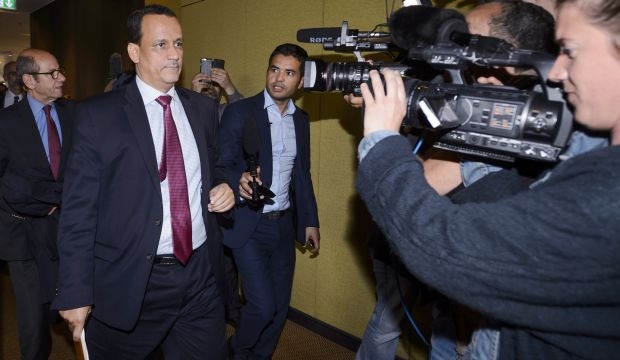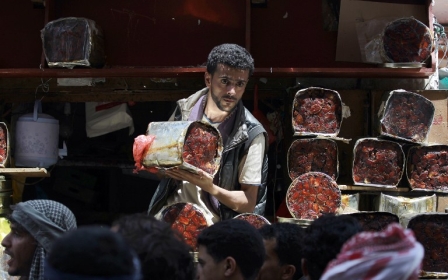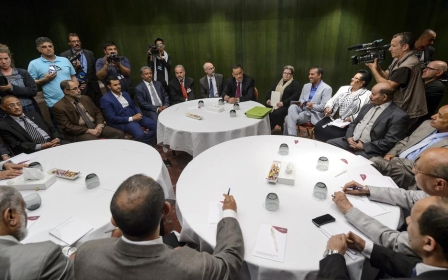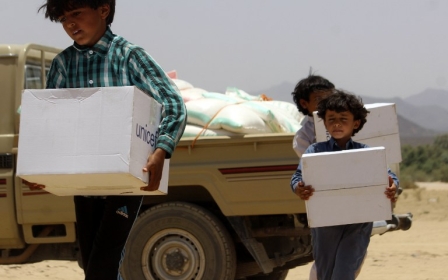Pro-Hadi delegation to leave Geneva as Yemen peace talks collapse

A delegation from the exiled Yemeni government is to leave Geneva on Friday night after the collapse of crunch peace talks with Houthi rebels who have seized control of much of the country.
Yemen’s Foreign Minister Riyadh Yassin Abdullah, who is allied to the elected President Abd Rabbuh Mansour Hadi, told reporters in Switzerland that the first round of talks had ended without an agreement, and that a date had not yet been set for a new round.
The delegation of officials allied to Hadi will now head back to Saudi capital Riyadh, from where they have been operating a government in exile since fleeing escalating violence in Yemen in March, days before a Saudi-led coalition began a bombing campaign over the country.
Foreign Minister Abdullah blamed the Houthi delegation for scuttling the talks and blocking a final agreement.
The UN had extended the stalled talks, led by UN envoy Ismail Ould Cheikh Ahmed, on Wednesday, as both the Houthis and the pro-Hadi delegation accused each other of attempting to sabotage the negotiations.
In the wake of the announcement Ahmed promised that he would "make more efforts to end the crisis" in Yemen, stressing that negotiations will continue.
Ahmed said the negotiations had reached a "positive" stage between all parties, but said that a date for the second round of talks would not be set yet.
"We cannot get results in one meeting."
The high-pressure negotiations saw chaotic scenes on Thursday as a Yemeni activist threw a shoe at a Houthi leader, sparking scuffles during a press conference.
Bottles and books were thrown in the conference room after a female activist threw her slipper at Hamza al-Houthi, head of the Houthi delegation, accusing him of “spreading death and disease in South Yemen”.
The World Health Organisation confirmed on Friday that more than 3,000 cases of dengue fever, a potentially lethal disease previously rarely encountered in Yemen, have now been registered since March.
The Geneva talks were aimed at securing a badly-needed humanitarian ceasefire in a country where fighting has blocked all but a few aid drops, and people have taken to cooking on stoves powered by sawdust due to a biting fuel crisis.
The UN on Friday launched a new $1.6 billion aid appeal for Yemen, warning of a "looming catastrophe" in the war-torn country.
According to UN figures, 80 percent of the population of Yemen, the poorest country in the Arab world, is now in need of some form of humanitarian intervention.
Saudi Arabia pledged in March to contribute $274 million to the aid efforts, although Foreign Policy reported on Thursday that the money has yet to arrive.
A previous five-day humanitarian ceasefire in May was welcomed by many on the ground.
New MEE newsletter: Jerusalem Dispatch
Sign up to get the latest insights and analysis on Israel-Palestine, alongside Turkey Unpacked and other MEE newsletters
Middle East Eye delivers independent and unrivalled coverage and analysis of the Middle East, North Africa and beyond. To learn more about republishing this content and the associated fees, please fill out this form. More about MEE can be found here.




